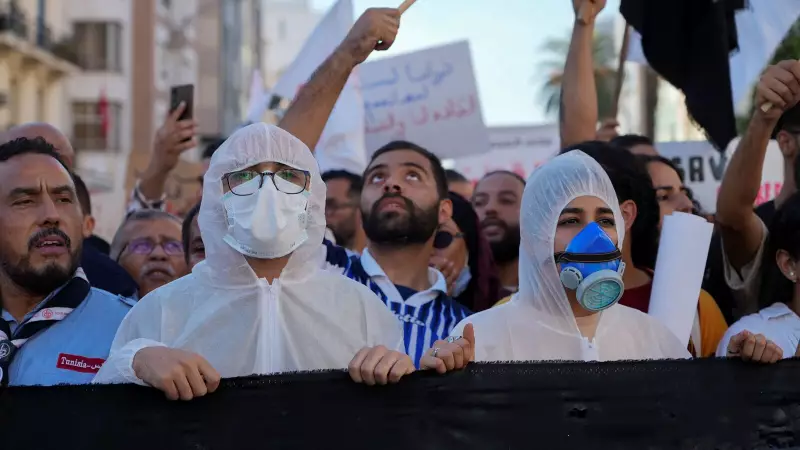
The coastal city of Gabes in Tunisia has become the epicentre of massive public outrage as thousands of citizens poured into the streets, demanding immediate government action against deadly industrial pollution that has turned their city into an environmental disaster zone.
'We Want to Breathe!' - The Cry That Echoed Through Gabes
Streets across Gabes resonated with chants of "We want to breathe!" as protesters, including women and children, expressed their desperation against the toxic environment that has made normal life impossible. The protests have escalated into one of the most significant environmental movements in Tunisia's recent history.
The Poisoned City: How Industrial Waste Chokes Gabes
Gabes, once known for its beautiful coastline, has transformed into Tunisia's pollution capital due to decades of unchecked industrial activity. The city hosts one of the world's largest phosphate processing plants, which has been dumping chemical waste directly into the Mediterranean Sea and releasing toxic gases into the air.
The environmental catastrophe has resulted in:
- Alarming rates of respiratory diseases among residents
- Contaminated agricultural lands and water sources
- Disappearing marine life along the coastline
- Increased cancer cases and birth defects
President Kais Saied Faces Mounting Pressure
The protests present a significant challenge to President Kais Saied's government, which has been grappling with multiple crises. While the President has acknowledged the environmental concerns in the past, protesters claim concrete action remains elusive.
"We cannot wait any longer. Our children are getting sick, our air is poison, and our sea is dead. The government must act now or face the consequences," declared one protester, capturing the mood of the demonstrations.
A Movement Gaining National Momentum
What began as local discontent has quickly gained traction across Tunisia, with environmental activists and opposition groups joining the cause. The Gabes protests highlight growing public awareness about environmental issues in North Africa, where industrial pollution often takes a backseat to economic concerns.
The situation in Gabes represents a critical test for Tunisia's leadership and their commitment to balancing industrial development with environmental protection and public health.






